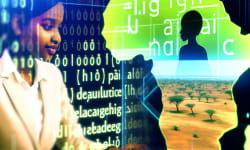Bridging the AI Language Divide: Africa’s Push to Empower Local Languages in Artificial Intelligence
Africa, a continent renowned for its rich linguistic tapestry—boasting over a quarter of the world's languages—is taking bold steps to ensure its voices are heard in the age of artificial intelligence. Despite this diversity, many African languages have been largely absent from AI-powered platforms, limiting access to digital tools and information for millions.
Recognizing this gap, researchers and technologists across Africa are developing comprehensive datasets featuring indigenous languages. These efforts are designed to train AI models, such as chatbots and translation tools, to understand and communicate in languages like Swahili, Yoruba, Zulu, and Amharic.
The new dataset, curated by a coalition of African universities and tech startups, includes thousands of hours of audio, text, and annotated data across dozens of languages. This initiative not only enhances AI’s ability to process and generate African languages but also empowers local communities by making technology more inclusive and relevant.
Experts say that bridging the AI language gap is crucial for digital equity. "If AI tools only understand major global languages, millions of Africans are left behind," says Dr. Amina Yusuf, a computational linguist involved in the project. "By investing in local language resources, we’re ensuring that everyone can benefit from the digital revolution."
The project faces challenges, such as limited funding and the complexity of digitizing oral languages. However, the momentum is growing, with governments, NGOs, and international partners joining the cause. As these datasets become integrated into global AI systems, Africa’s linguistic heritage will play a vital role in shaping the future of technology. Read the source »






